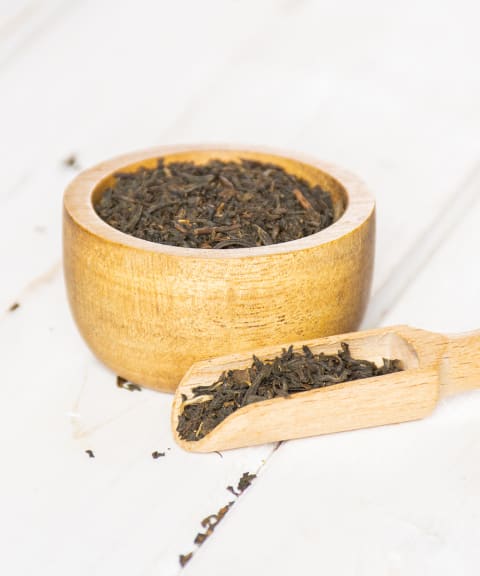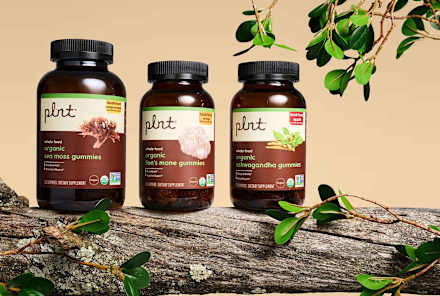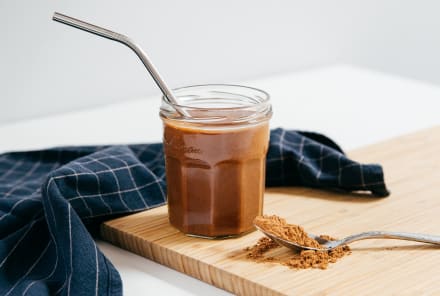Advertisement
Combine Fasting & Holistic Health In This Four-Week Program

Some of us are already fasting pros, and some of us are still dipping our toe in, unsure of how it works to eat just one or two meals a day. But we all share one thing in common: the desire to feel in control of our hunger and eating habits. In his book Intuitive Fasting, bestselling author and functional medicine expert Will Cole, D.C., balances the next-level science behind intermittent fasting with an understanding of our body's instinctive eating patterns. By using a more holistic approach—as Cole outlines—intermittent fasting finally feels accessible for all bodies and personalities. Cole's four-week program teaches us how to truly bring those much-touted fasting benefits to life by harnessing our body's intuitive eating cues and different intermittent-fasting windows. Given the level of mental energy we routinely spend on eating and health, it feels good to simply let our bodies tell us what to eat and when.
In the excerpt below, glimpse the fascinating science behind intermittent fasting and the "hidden benefits" taking place at a cellular level to affect your long-term health. Get started on Cole's four-week program by buying your own copy of his book here.
Intuitive Fasting: The Flexible Four-Week Intermittent Fasting Plan
One of the main benefits of fasting has to do with autophagy, which you can think of as your own personal, accelerated, anti-aging treatment. The word autophagy was coined by a biochemist named Christian de Duve in 1963, but we've only recently begun to understand just how much this process affects our health on a daily basis. Autophagy (auto meaning "self" and phage meaning "eat") is a mechanism that jumps into gear during times of fasting where the body starts to gobble up, recycle, or destroy damaged cells and proteins. At first, this may seem like a bad thing, but the ultimate goal of autophagy is to make room for new, healthy cells to grow and take over. It's been described as "a process of cellular housekeeping," and it's absolutely critical for optimal health.
This is especially true when you take into account the onslaught of stressors cells are exposed to in modern life. Intermittent fasting has been shown to improve cellular function, increase the healing of stem cells, and improve resilience against a wide range of stressors, including metabolic, oxidative, traumatic, and proteotoxic stressors (which include things like damaged proteins).
Autophagy is important no matter our age, but it's particularly critical as we get older since aging hinders our ability to clean our old cells and proteins, and all this debris can start to build up. Reductions in autophagy have been linked to a range of diseases. The authors of one study wrote that autophagy's main job is to protect us from anything from infections and cancer to neurodegeneration, accelerated aging, and heart disease. Whenever I talk about fasting to live longer, I'm often met with a lot of raised eyebrows and skeptical looks. But the truth is, until about a decade ago almost all studies on intermittent fasting focused on aging and longevity—and most of them concluded that fasting can, in fact, increase life span.
Need an example? One of the first studies on fasting1 reported that the life span of rats increased by as much as 80% when they were put on a fasting plan where they were given food only every other day. In a study on worms, a fasting diet increased life span by 40%; in another on male mice on an alternate-day fasting program, they observed an increase in longevity.
OK, but rats and worms are not humans. Well, there is also substantial evidence that fasting increases longevity in humans as well. For starters, it's known to prevent many age-related diseases, including the top causes of death. There are many theories as to why fasting has such a positive impact on life span. One has to do with "blue zones," such as the one on the island of Okinawa. The isolated population there typically maintains a regimen of intermittent fasting and has extremely low rates of obesity and diabetes, as well as extreme longevity2.
As we already know, extended fasting produces ketones; well, ketones also regulate the expression of specific molecules and proteins that play a known role in aging. A few examples of these include NAD+ and sirtuins3. You may have heard of NAD+ because there are a growing number of nutritional supplements said to promote NAD+ and, subsequently, a healthier cellular aging process. How, you ask? NAD+ levels decline as you age, and, as is explained in an article published in Trends in Cellular Biology4, that "may be an Achilles' heel, causing defects in nuclear and mitochondrial functions and resulting in many age-associated pathologies."
It's thought that restoring NAD+ levels, especially as they decline with age, may ameliorate age-related issues and counteract age-related diseases. NAD+ does this by supporting cellular energy and helping you maintain healthy DNA, but it also does this by activating sirtuins. I'm at risk of diving too deep into the science of aging, but sirtuins are a class of proteins that occur in all types of living organisms—everything from yeast to bacteria to mammals. In humans, sirtuins play a key role in the body's cellular response to stressors, including oxidative stress and DNA damage. Some studies have pointed to the idea that sirtuins could play a direct role in extending life span. The good news is that NAD+ supplementation isn't the only way to increase the level of sirtuins. In fact, physical activity and dietary changes—including fasting and ketogenic diets—have been shown to increase sirtuins. Even specific compounds, such as curcumin5, are being studied for their ability to increase sirtuin levels.
Another longevity pathway that researchers are exploring is mTOR. Increased mTOR is associated with accelerated aging and age-related disease. The mTOR pathway is especially stimulated by protein consumption. Both fasting and fasting-mimicking diets like the ketogenic diet have been shown6 to be beneficial at balancing mTOR.
Importantly, intermittent fasting has also been shown to stimulate mitophagy, which is essentially just the autophagy of the mitochondria. Finally, fasting has also been shown to inhibit pathways that create proteins, pressing pause on creating new material so that the body can conserve energy and resources while it cleans house. You don't want your cells to always be dividing and replicating because that has been linked with an increase in oxidative stress. Research has also confirmed that when you are constantly snacking, overeating, or living a sedentary lifestyle, these beneficial pathways are left untapped or even suppressed. This is why giving yourself periods of time without food, regardless of the specific protocol, appears to be overwhelmingly beneficial.
Recipe: London Fasting Fog
Bergamot oil is one of the polyphenols that contain natural healing properties at cellular levels that increase and induce the autophagy process. These polyphenols are compounds found in plants that protect the plant from any damage. And as bergamot oil protects the plant, when eaten, it also protects our bodies by boosting our autophagy process. Including bergamot in your fasting plan will help support your body's ability to clean out damaged cells as well as promote new cell growth. Personally, I sip on organic Earl Grey tea to enhance autophagy when I am doing intermittent fasting—and I make sure it has real bergamot, not just bergamot flavoring. If you don't have Earl Grey tea on hand, you can mix a drop or two of pure bergamot essential oil into black tea to create the same taste and benefits of Earl Grey. Bergamot oil can also be added to different kinds of food, like dips and desserts, to give them a hint of citrus flavor.

Ingredients
● 1 Earl Grey tea bag
● 1 cup hot water
● ¼ tsp. vanilla extract
● 1 tbsp. grass-fed ghee
● 1 tbsp. coconut oil or MCT oil
��● Keto sweetener to taste
Method
Brew tea in hot water—covered—for 3 to 5 minutes. Then, using a blender or a handheld milk frother, blend all ingredients until frothy.
6 Sources
- https://www.ncbi.nlm.nih.gov/pubmed/7117847
- https://academic.oup.com/jn/article/133/6/1921/4688086
- https://www.ncbi.nlm.nih.gov/pmc/articles/PMC6125375/
- https://www.ncbi.nlm.nih.gov/pmc/articles/PMC4112140/
- https://www.ncbi.nlm.nih.gov/pmc/articles/PMC5514220/
- https://www.ncbi.nlm.nih.gov/pmc/articles/PMC5609489/



















